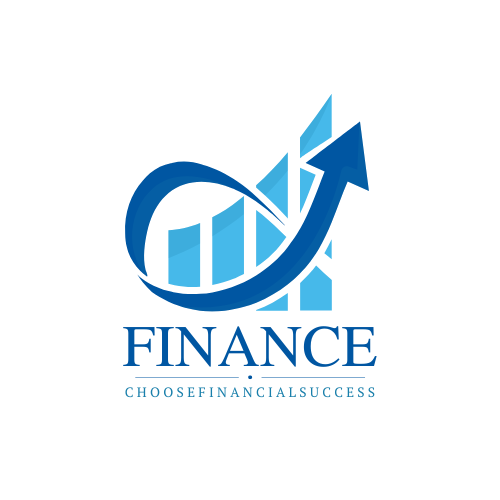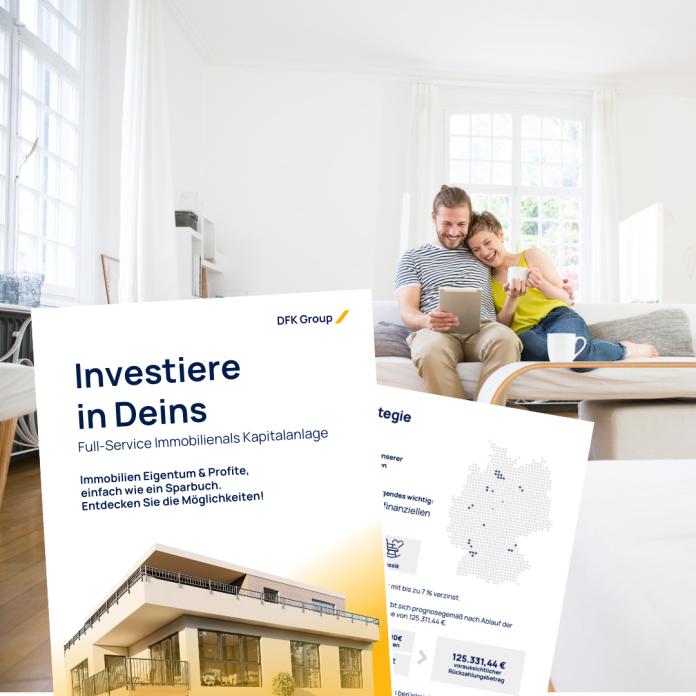To describe sustainability and the pursuit of energy efficiency in real estate as a simple trend hardly does justice to the size and importance of the development. Climate change with more and more severe weather events makes it clear: reducing the energy consumption of real estate is an unavoidable necessity. In this article we show what trends await the real estate market in connection with sustainability and energy efficiency in 2024 and what the development means for real estate investors.
Energy saving remains the number one topic
The central factor for more sustainability in real estate is energy savings through greater energy efficiency. 35 to 40 percent of energy is consumed in apartments and houses, with 90 percent of this being used for heating and hot water. Insulation, modern heating systems using renewable energy sources and windows with high insulation values are already common practice and are basically “old hat” when it comes to sustainability. In the future, new products and new technologies will raise sustainability in the real estate market to a higher level.
The idea of sustainability is moving further up the chain of the real estate market
The topics of sustainability and energy efficiency are now more important even in the production of building materials for real estate. For example, a prerequisite for a sustainability certificate as part of funding from the Kreditanstalt für Wiederaufbau (KfW) is that the materials used also correspond to the idea of sustainability. Manufacturers are reacting to this and are increasingly paying attention to compliance with social and environmental standards in the supply chains of their raw materials. The careful use of resources and investments to save energy are also current topics.
Recycled building materials: Turn old into new
When it comes to building materials, the use of recycled materials is certainly one of the newer real estate trends. This refers to building materials that are made entirely or partially from recycled materials. Concrete, glass and steel from the demolition of buildings can now be processed so that the materials can be used again in the construction of apartments. Reusing these recycled materials helps the environment in two ways. There is less rubble in landfills and at the same time fewer new resources have to be used in the production of new building materials.
Biomaterial on the rise
At the same time, when it comes to building materials, biological materials are becoming increasingly fashionable in the real estate market. Wood in particular should be mentioned here as a renewable raw material. This and other natural building materials are not only used as secondary materials in the real estate market, but are now (again) used as main materials. Biologically produced materials are already established and are becoming increasingly popular in the area of property insulation. Grass, hemp, wood and jute fibers or even straw are mainly used here.
Building energy efficiently also means optimizing processes
An important factor for sustainability in the construction and renovation of real estate is energy efficiency in the design of processes on construction sites. Here, as at DFK Bau GmbH – the construction company of the DFK Group – we are constantly working on optimization. The goals are: to work as resource-efficiently as possible while consuming a minimum of energy. This not only saves money during the construction phase, which ultimately reduces property prices for investors, but also protects the environment. Digitalization is one of the big real estate trends here.
Smart building technology
Modern technology ensures more sustainability and energy efficiency in the real estate market not only during the construction phase, but also during the use phase. The technology, usually already supported by artificial intelligence, now controls heating and ventilation, for example. This ensures cheaper additional costs through energy savings and at the same time increases living comfort. This real estate trend toward automation will continue in 2024. Excellent conditions for investors, because smart building technology increases the chances of renting an apartment long-term and profitably.
Role of energy efficiency in the real estate market
In line with the idea of sustainability, the topic of energy efficiency has become an integral part of the planning of new buildings and the renovation of old buildings. The topic is inseparable. Subsidies, without which new construction or the renovation of real estate can hardly be financed these days, are largely made dependent on the energy efficiency of the building.
What does “energy efficient building” mean?
The energy efficiency of a property is measured by the level of energy consumption. The guideline is how much energy a so-called “reference building” requires that meets the legal minimum standards. This auxiliary building corresponds to the newly planned house in terms of geometry, usable space and orientation. However, it only meets the minimum requirements of the law when it comes to insulating the external walls, ceilings and basement, as well as the windows and heating technology.
The level of the energy efficiency house is determined by the legal minimum standard
Depending on what percentage of energy a newly planned property consumes compared to the reference building, its energy efficiency is determined. This determines, for example, which energy efficiency level a building achieves for KfW funding. Accordingly, an energy efficient house 40 only uses 40 percent of the energy of a reference building according to the legal minimum standards. Basically, the more energy efficiency, the more funding an investor can claim. The degree of energy efficiency is a crucial factor for investing in real estate, as it has a decisive influence on real estate prices.
Key features of energy efficiency standards
One of the most important factors in the energy efficiency of a property is the thermal insulation of the building envelope. Together with airtightness, this determines how much energy escapes from the interior through the walls, the largest surfaces in a building. Added to this is the heating technology used. The more renewable energies are used, the better for the balance of an apartment.
Costs and benefits of the real estate trend towards more sustainability and energy efficiency
As is usual with new trends and technologies, the costs of taking advantage of new real estate trends are higher than traditional and proven standards. This also applies to developments in sustainability in real estate. You can find out what this means for investors and property prices in this section.
Higher costs yes, but payback is more important
Analyzes show that, for example, the costs of building an efficiency house 40 are between 15 and 25 percent higher than an efficiency house 55. However, the amount of additional costs for investors is not that important. Rather, it depends on how quickly the investment in a higher standard will pay off. Experience shows that the additional costs are amortized over a period of between ten and 15 years.
Double benefit
The benefits of more sustainability and more energy efficiency in real estate are reflected for investors in two values: In addition to the market value, this is the amount of rent that can be achieved. While there is already certain information about market values for real estate, there is still uncertainty as to whether tenants are willing to pay more rent for greater sustainability.
Higher market value
Several studies confirm that properties with high energy efficiency achieve a market value that is up to 30 percent higher. The studies compare houses with the best energy class A compared to properties with the worst energy classes G and H. On average, energy-efficient properties achieve a market value that is around 20 percent higher. In addition to the purely higher real estate prices, there are also indications that buildings with better energy efficiency offer more stability in the development of market prices.
Higher rents
The extent to which the sustainability or energy efficiency of an apartment influences the amount of rent that can be achieved cannot yet be determined with certainty. Reliable studies are still missing. But the fact is: If an investor renovates a property to make it more energy efficient, some of these costs can be passed on to the tenants. Section 559 of the Civil Code allows a landlord to increase the rent by a maximum of eight percent of the costs incurred. Depending on the apartment and the amount of renovation costs, rent increases of up to 200 euros per month are possible.
The real estate trends for 2024 briefly summarized
Overall, it can be said that sustainability and energy savings through greater energy efficiency will continue to dominate the real estate market in 2024. In the future, more emphasis will be placed on sustainability throughout the entire chain of the real estate market, from the production of building materials to the design of energy-efficient construction processes. Recycled building materials, digitalization and smart building solutions are the keywords for the real estate market. The increased automation extends from the production of building materials through the construction to the use phase of a building.
Sustainability and energy efficiency: an opportunity for real estate investors
For real estate investors, the findings show that sustainable investments pay off in the long term. The advantages: higher market values and more stable price developments. In addition, there is an increased attractiveness of energy-efficient and sustainable apartments in the rental phase.
Concrete tips for more success in real estate investments
1. Use funding: Funding for new construction or renovation is often tied to the energy efficiency of the building. As an investor, you should therefore include energy efficiency in your planning in order to benefit from financial incentives.
2. Don’t be afraid of higher initial costs: Despite Although initially higher costs, sustainable construction methods pay for themselves in around ten to 15 years.
3. Use modern technologies: The integration of modern technologies, such as smart building solutions and artificial intelligence, increase the attractiveness of a property. The resulting lower additional costs and increased living comfort increase the chances of long-term and profitable rental.
Overall, as a real estate investor, you should integrate the increasing importance of sustainability and energy efficiency in the real estate market into your investment strategies in order to achieve long-term profitability and increases in market value. The good feeling of doing something for the environment and future generations should not be ignored. You can find further tips and a detailed explanation of how a property works as an investment in the article “Apartment as an investment: What should you consider?”
How the DFK Group deals with real estate trends
In recent years, the DFK Group has developed a high level of expertise in the area of energy efficiency in its new and existing properties. Together with our partners, such as energy consultants, we develop our buildings according to modern standards. As a result, DFK properties often receive the maximum amount of funding, which means lower purchase prices for investors. On the other hand, the buildings present themselves at an energy standard that meets the needs of current and future tenants.
Please feel free to talk to us and get to know the world of sustainability and energy efficiency in our properties.
We have summarized further trends for you in the article “Trends in the real estate market 2024: How will rents, interest rates, construction and real estate prices develop?”


